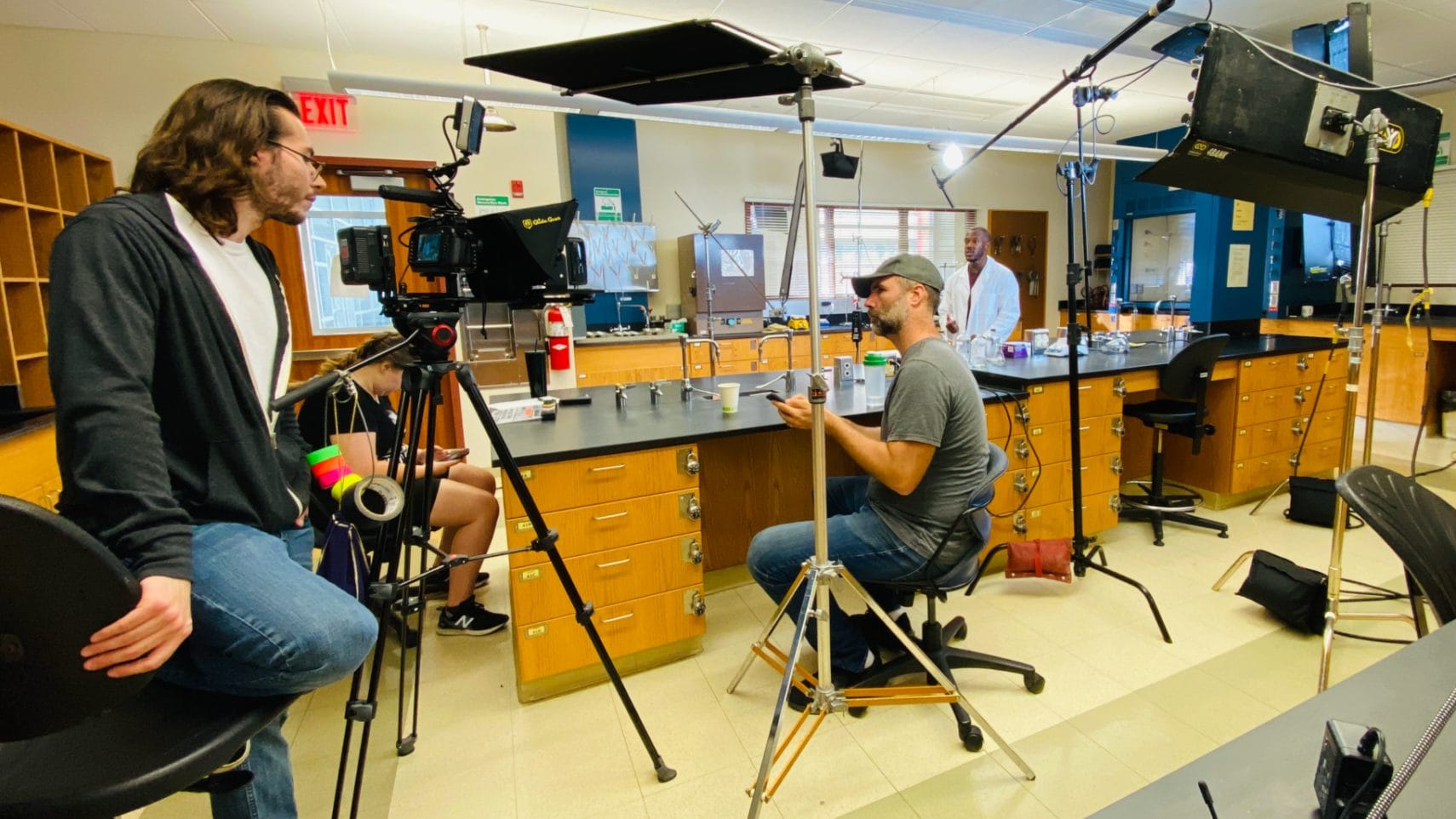I find it frustrating when people use the term “videographer” when they actually need a “video producer” or “production company.” For those unfamiliar with the film, TV, or video production industries, these distinctions can be a bit confusing. In this post, I hope to clarify these terms, so that you can hire the right person or team for the job.
The Videographer
A videographer’s role is quite specific. They are tasked with capturing visual content through a camera, essentially “writing” what they “see” to video. An equivalent term would be camera person. Their primary goal is to capture footage in real time. Typically, videographers work independently, handling both video and audio capture, and may also manage lighting if it’s required. While most people today have access to a video recording device (aka the smartphone in their pocket!), professional videographers will possess higher-quality gear that increases the quality of the captured footage.


The Production Company
A video production company is responsible for overseeing the entire video production process. They assemble a team of specialists, such as producers, writers, cinematographers, editors, and sound designers, to bring the project to fruition. The size and composition of this team vary depending on the project’s scope, timeline, and desired level of professionalism, often referred to as its “production value.” Production companies handle both the creative and logistical aspects of production, including negotiating with clients on the cost of a project and managing personnel and contracts.
The Producer
A video producer is typically employed by a production company (or may even own one) and are tasked with overseeing the entire video project from start to finish. Producers lead the creative vision of the project and coordinate the efforts of various specialists, such as writers, cinematographers, and motion designers. An equivalent role on a big-budget Hollywood production would be the director. While video producers may work with smaller teams and fewer resources, their role is pivotal in ensuring the project’s success. On smaller-scale projects, producers may wear multiple hats, also filling more specialized roles such as video editor.


The Myth of the “One-Person” Production Company
With the rise of online video content, there’s a misconception that a single individual can handle all aspects of video production. This notion often leads to job ads seeking a “video person,” mistakenly labeled as a “videographer” or “producer.” However, it’s unrealistic to expect one person to excel in all areas of production, from shooting and editing to sound design and motion graphics. While some individuals may possess skills across multiple domains (I happen to be one of them!), the quality of the final product typically suffers when one person tries to do it all. Instead, I recommend organizations either partner with a production company or establish their own internal production team. Collaborating with a team of specialists ensures each aspect of production receives the attention it deserves, resulting in the highest-quality content.
This article was revised for clarity using Chat GPT-4.


